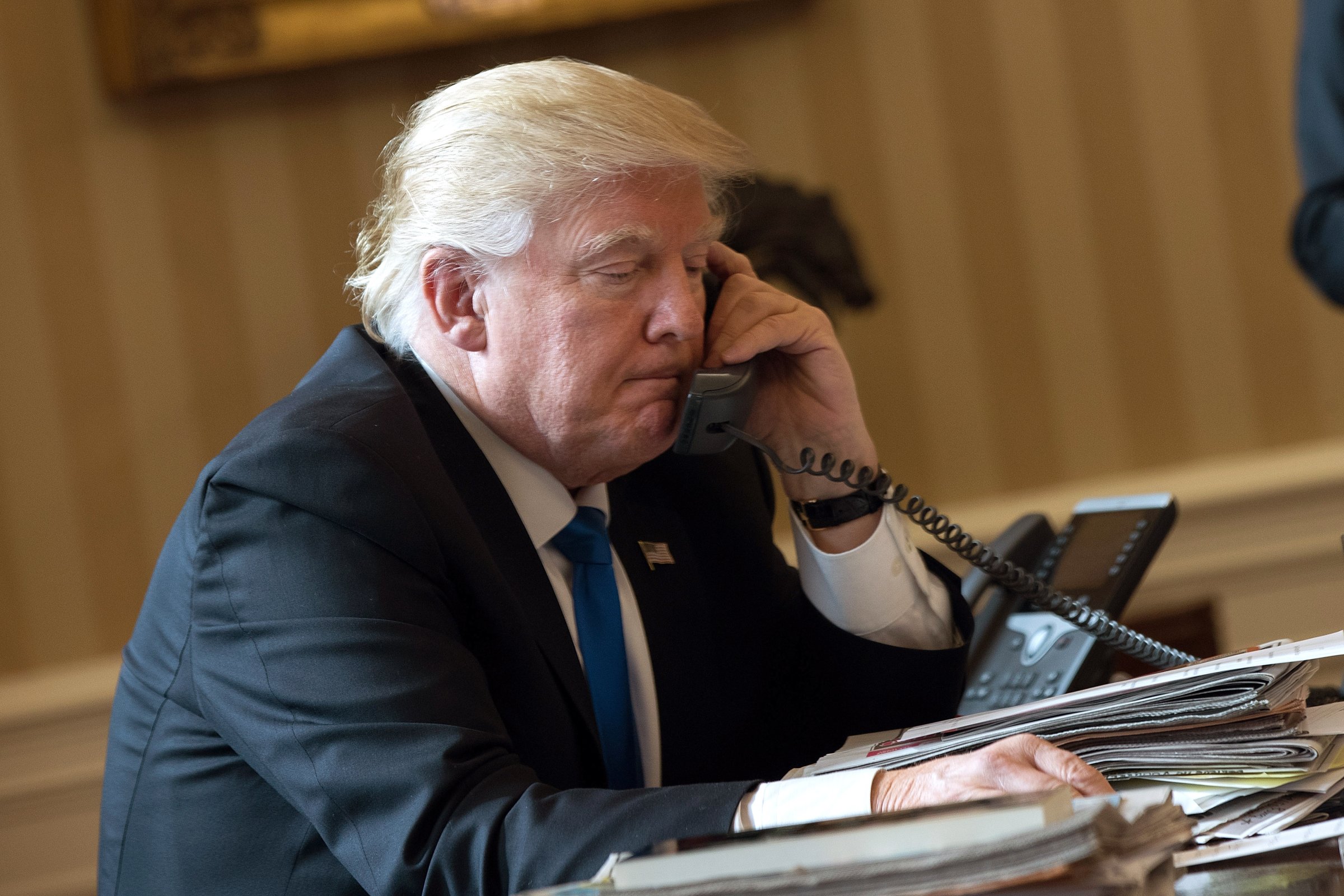
Russia wants better relations with the US; Donald Trump wants better relations with Russia, too. But as Trump’s campaign theme music continues to remind us, you can’t always get what you want. Here are the top 5 reasons no one should expect a Russia-US rapprochement.
1. NATO
Getting NATO countries to pay more on defense has been one of Trump’s few consistent foreign policy proposals—and one of the least controversial, given that just five of NATO’s 28 countries (US, Greece, the UK, Estonia and Poland) meet the 2-percent-of-GDP defense spending target. But here’s the thing—if you demand that other NATO members pay more money, and then those NATO countries agree, the alliance becomes stronger, not weaker.
Russia doesn’t want a stronger NATO—as evidenced by Moscow sending a spy ship 30 miles off the US eastern seaboard and Russian jets buzzing an American warship in the Black Sea, both in February. Provocative military actions don’t build good relations.
2. Trump’s Cabinet
Defense establishment figures within the Trump administration also limit the potential for US-Russian security cooperation, the center of any potential warming of US-Russia relations, since there is already very little trade between the two countries. During his confirmation hearings, Defense Secretary James Mattis pointed to Russia and Vladimir Putin as one of the principal geopolitical threats facing the US today. Trump’s choice for CIA Director, Mike Pompeo, began his own confirmation hearings by decrying Russia’s interference in the 2016 US presidential election. The resignation of pro-Russia National Security Adviser Michael Flynn less than a month later (at 24 days, the shortest tenure in history) only compounded the issue—his replacement, Lt. General H.R. McMaster, called Russia a “hostile revisionist” power during a talk he gave this past November at the Virginia Military Institute. And Trump’s interest in the Kremlin led the White House to appoint well-regarded Russia scholar and former intelligence officer Fiona Hill as White House Senior Director for Europe and Russia. Hill wrote a book on the Russian president titled “Mr. Putin: Operative in the Kremlin” back in 2013.
And as the White House lurches from one PR crisis to another, Trump is burning through the political capital he would need to override these widely-respected defense figures, making the prospect of US-Russia rapprochement that much more distant.
3. Russian Domestic Politics
Aware of these issues, Russian official attitudes toward the White House are changing. Much was made of the early positive press Trump received from Russian TV stations, from which 80 percent of Russians get their news. For a moment, Trump seemed to be getting better press coverage than Putin—in January, Trump was mentioned 202,000 times in Russian mainstream media news coverage compared to Putin’s 147,7000. It was the first time in six years that anybody surpassed Putin for that honor.
But things began to sour in February on the heels of Flynn’s resignation, coupled with damage-control comments from the White House that Trump expected “the Russian government to de-escalate violence in the Ukraine and return Crimea.” Flynn resigned on February 13th; between February 5th and February 19th, Trump mentions fell by 88 percent on those all-important Russian Sunday news shows. It wouldn’t be surprising if the cutback in Trump coverage was ordered directly from the Kremlin, which can’t continue to praise Trump and raise public expectations for better relations if they aren’t actually going to improve.
4. Oil
Donald Trump is a pro-oil president, for reasons that have absolutely nothing to do with Russia but impact its government just the same. Trump’s bid to eliminate Obama’s environmental rules and push for more production is close to the last thing that oil-export-dependent Russia needs right now. The Russian economy relied on oil and natural gas to fund nearly 50 percent of its fiscal revenues last year. Given that level of exposure, even small fluctuations in oil prices have big implications for the Russian economy—one that’s been reeling since 2013 and that’s lost more than 40 percent of its GDP as oil has tumbled from its mid-2014 high of $115 per barrel to $50 today. The world is already facing an oversupply of oil, and though market factors are driving production decisions for US oil companies, Trump’s oil-friendly environmental policies could boost production at the margins and help push prices lower. This is a good reminder that, though Trump and Putin may admire one another and want warmer relations, divergent national interests still matter.
5. The Elephant in the Room
Questions about Russia’s role in the US election aren’t going away. FBI Director James Comey confirmed this week that the FBI is investigating possible Russian interference in the 2016 election, as well as possible cooperation between Russian intelligence and the Trump campaign. The White House maintains that there’s no fire, only smoke generated by illegal leaks and a biased mainstream media. That’s certainly possible—but it’s worth remembering that most fire deaths aren’t caused by burns, but by smoke inhalation.
***
The good news for Trump? Better relations with Putin would probably drag his already historically-low approval ratings down even further. You can’t always get what you want—but sometimes you get what you need. For Trump in this case, whether he knows it or not, that’s greater distance from Russia and Putin.
More Must-Reads from TIME
- Donald Trump Is TIME's 2024 Person of the Year
- Why We Chose Trump as Person of the Year
- Is Intermittent Fasting Good or Bad for You?
- The 100 Must-Read Books of 2024
- The 20 Best Christmas TV Episodes
- Column: If Optimism Feels Ridiculous Now, Try Hope
- The Future of Climate Action Is Trade Policy
- Merle Bombardieri Is Helping People Make the Baby Decision
Contact us at letters@time.com